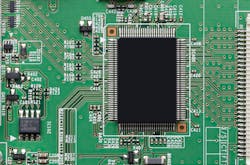Proposed Rules for the CHIPS Incentives Program Define National Security Standards
The U.S. Department of Commerce announced proposed new rules putting national security guardrails in the CHIPS Incentives Program that offers billions to semiconductor manufacturers to build plants in the U.S.
Recipients of funding through the CHIPS and Science Act to encourage domestic semiconductor manufacturing have standards in place to prohibit using the funds for specific activities with foreign countries of concern. Additional information about these security efforts were detailed in the notice of proposed rulemaking, including:
- Recipients are prohibited from making significant transactions 10 years from the date of the award for advanced facility expansion in foreign countries of concern.
- Limiting the ability for recipients to expand capacity in foreign countries of concern
- A chip critical to national security will not be considered a legacy chip.
- Applying “a more restrictive threshold for logic chips than is used for export controls.”
- Restricting recipients’ ability to participate in technology licensing or joint research with foreign entities of concern.
The People’s Republic of China, Russia, Iran and North Korea are identified as foreign countries of concern in the statute.
“CHIPS for America is fundamentally a national security initiative and these guardrails will help ensure malign actors do not have access to the cutting-edge technology that can be used against America and our allies,” said Secretary of Commerce Gina Raimondo. “We will also continue coordinating with our allies and partners to ensure this program advances our shared goals, strengthens global supply chains and enhances our collective security.”
The Commerce Department will accept public comments to inform the final rule for 60 days.
About the Author
IW Staff
Find contact information for the IndustryWeek staff: Contact IndustryWeek
